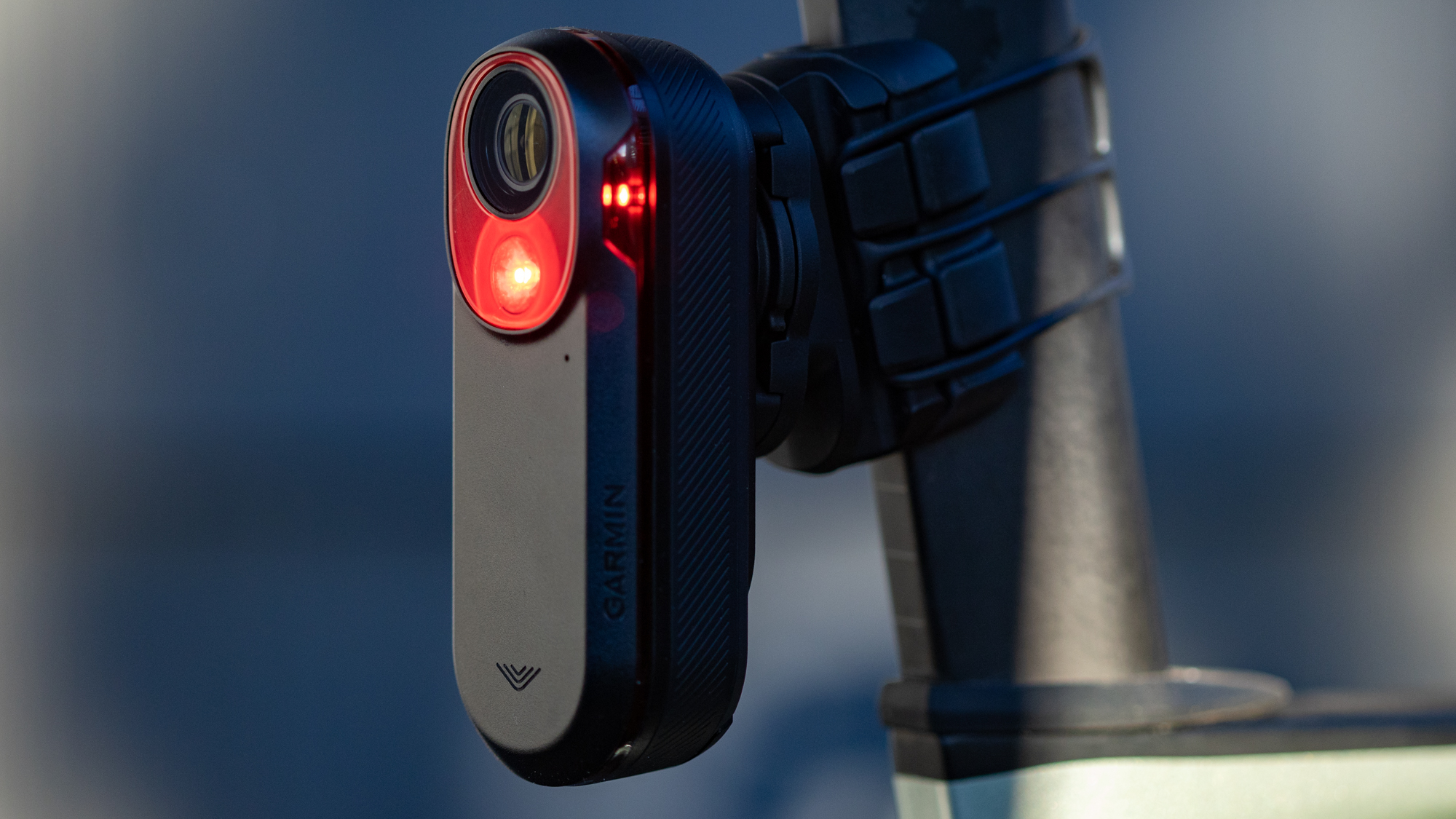Quintana loses Giro d'Italia lead in worse-than-expected time trial defeat
Movistar Team rider loses nearly three minutes to Dumoulin
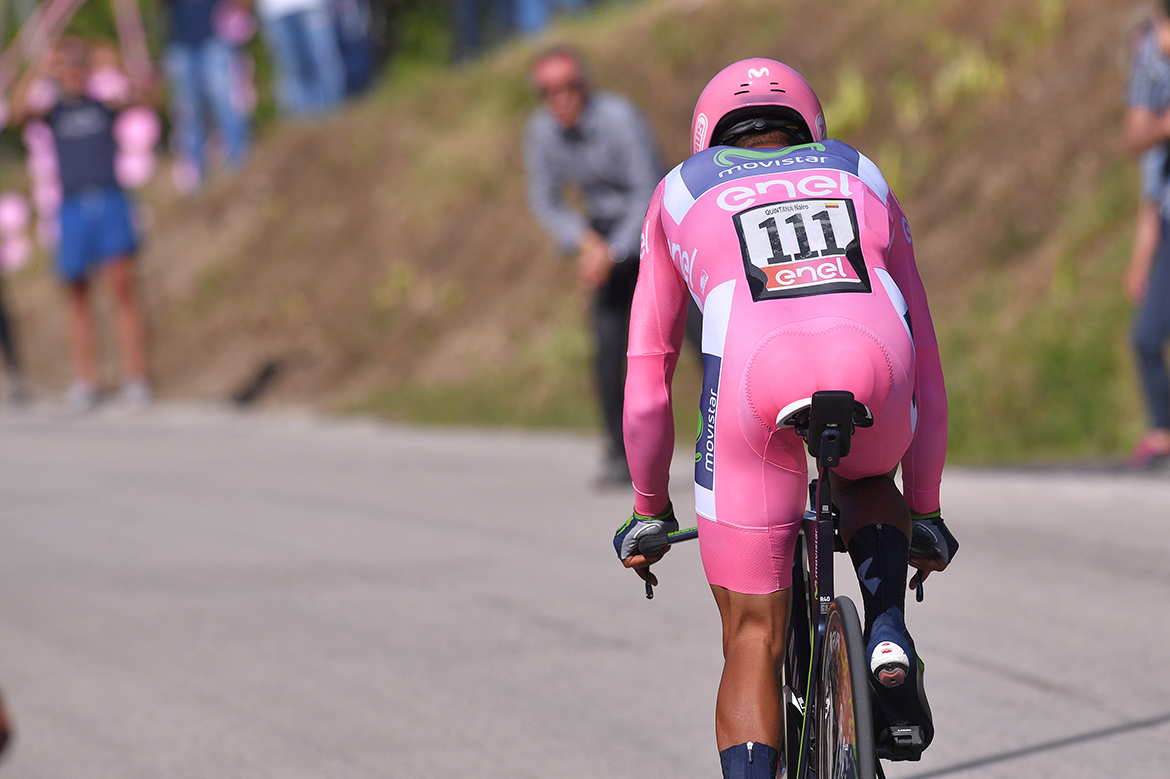
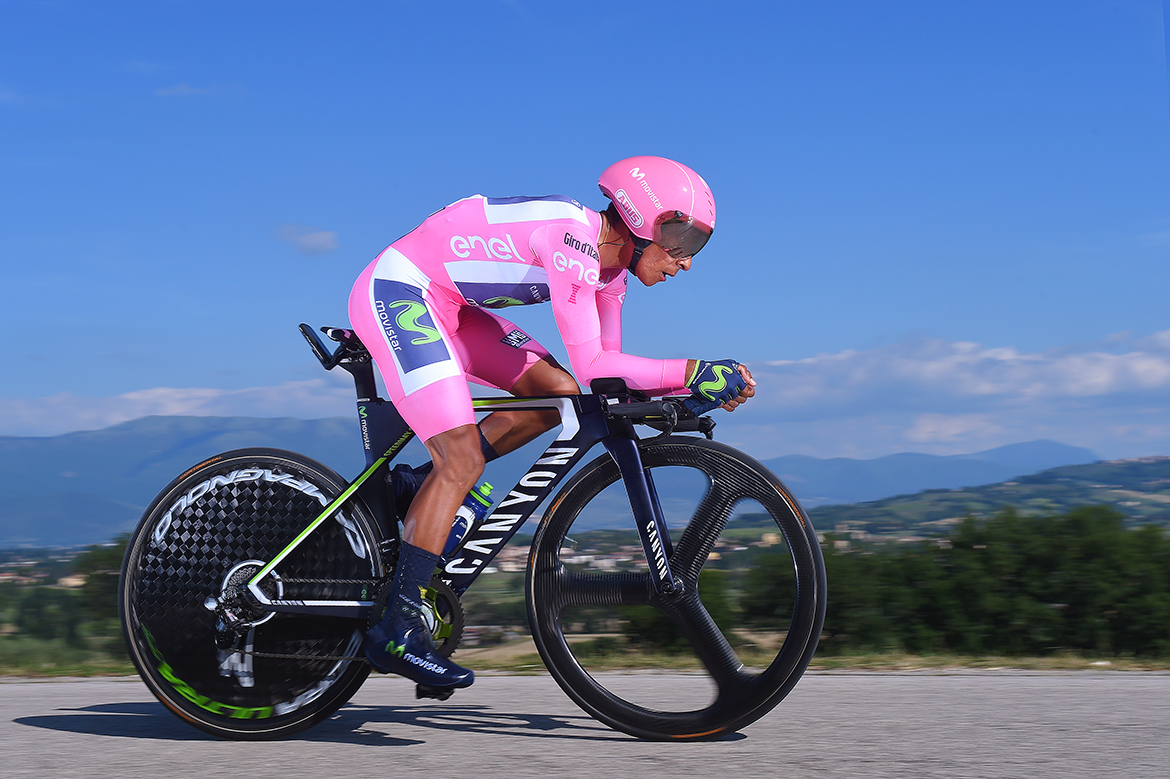
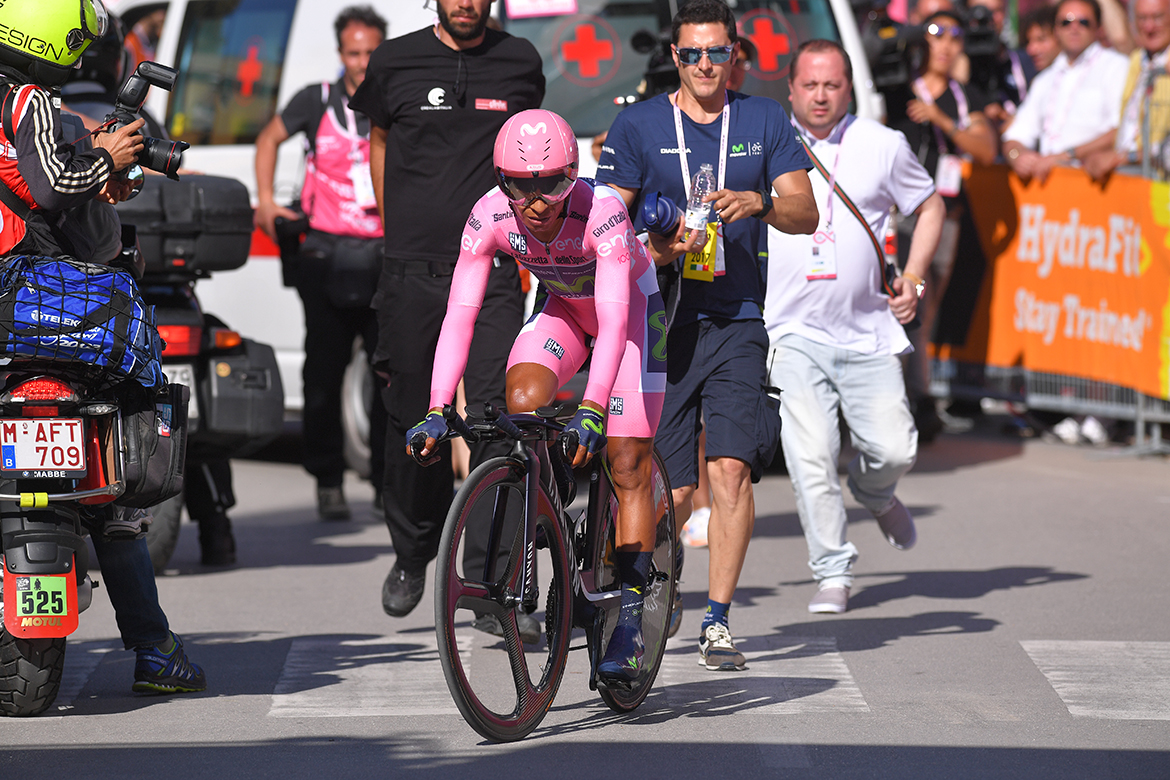
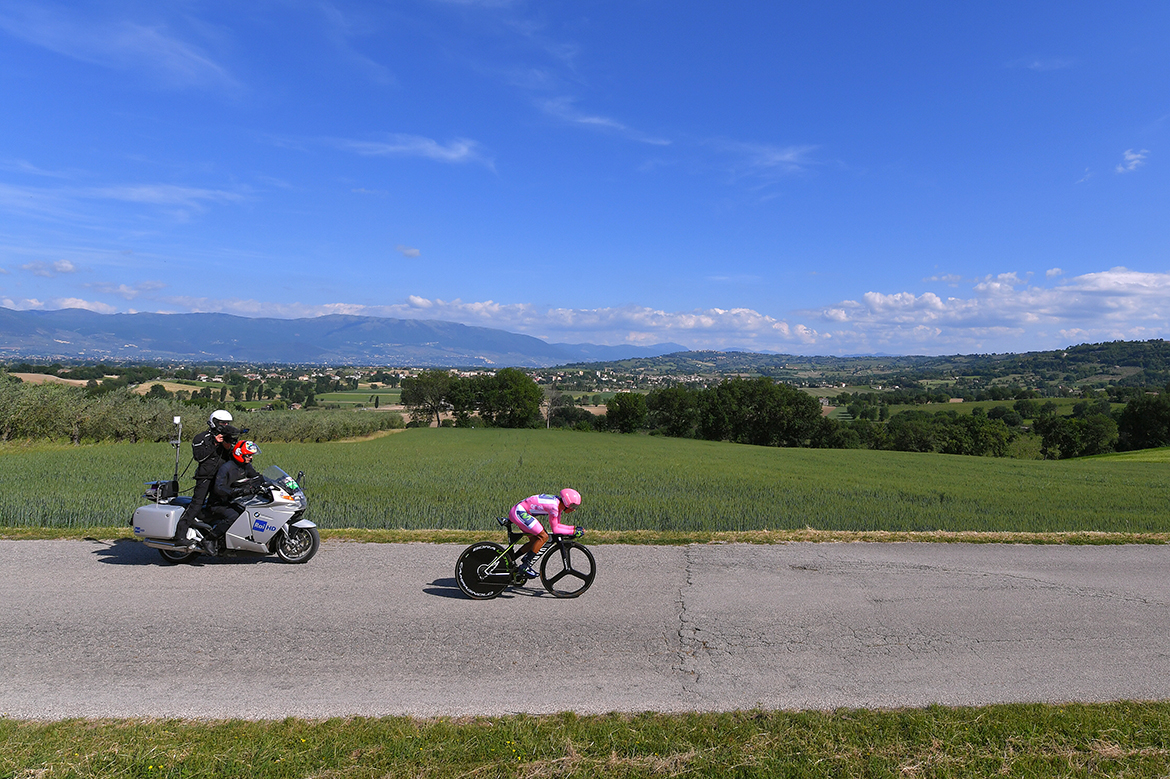
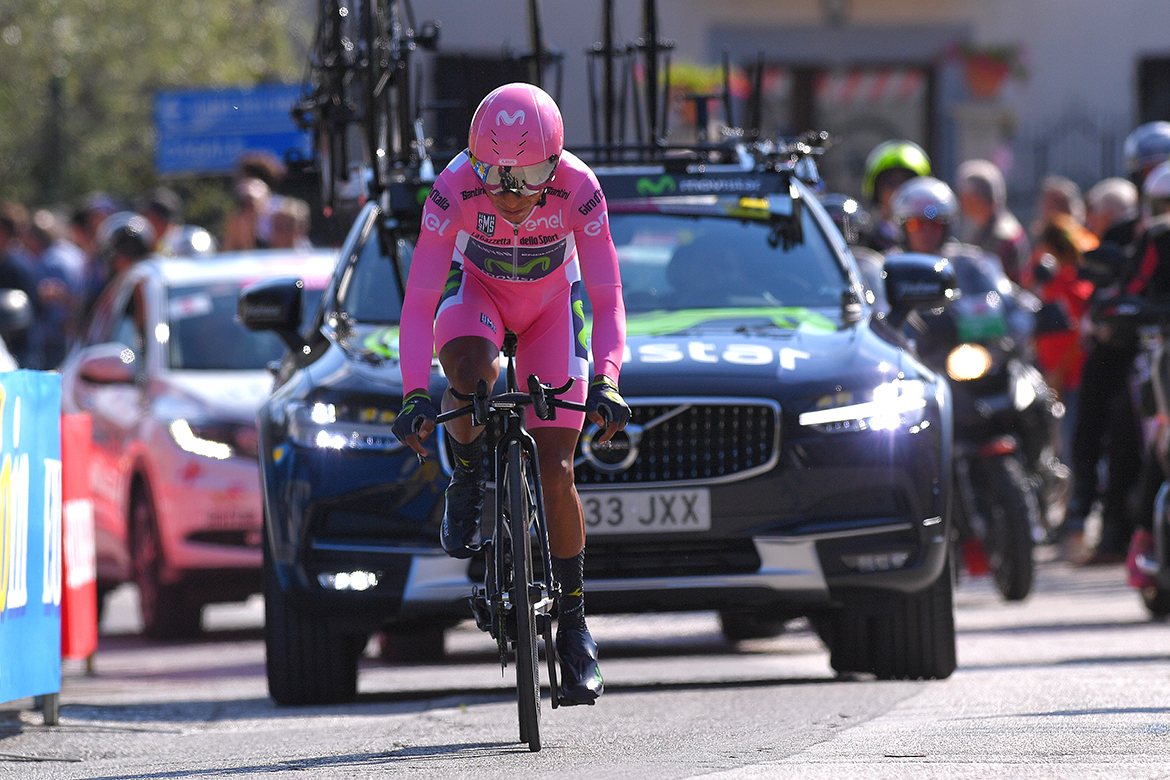
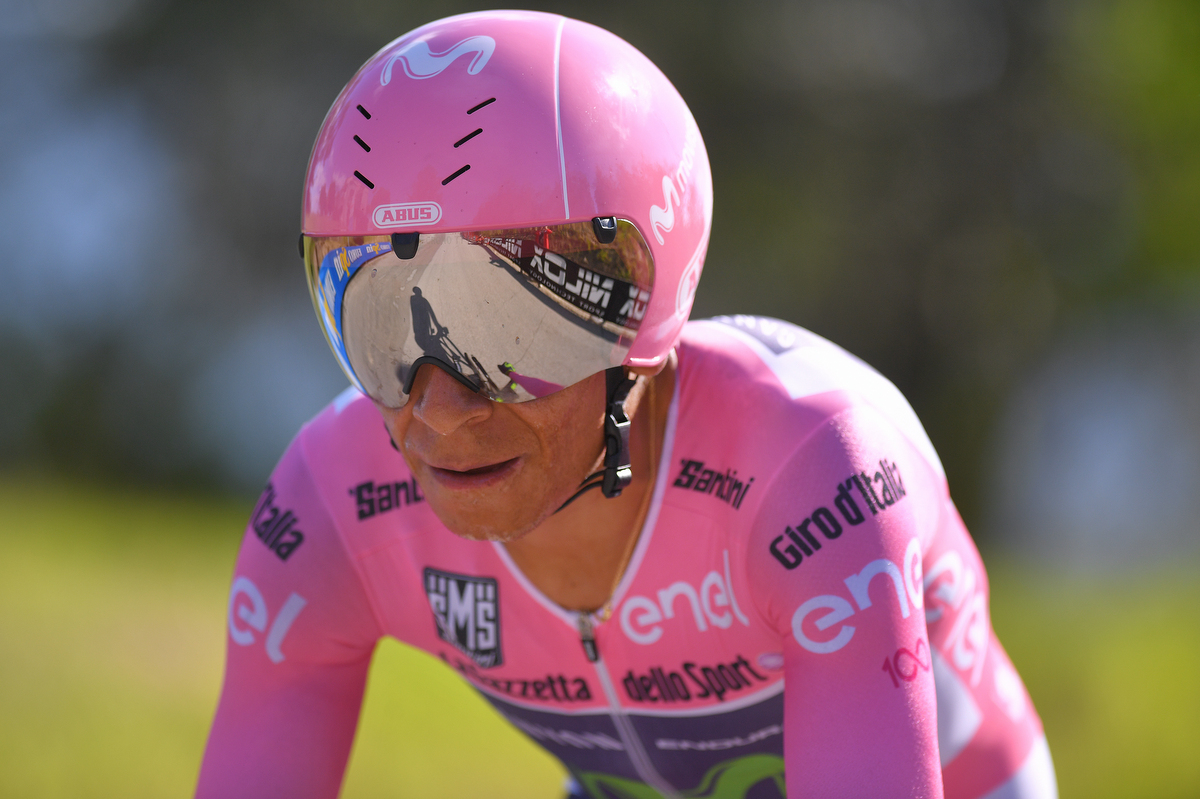
Just 48 hours after he powered into the Giro d'Italia lead on the Blockhaus, Nairo Quintana (Movistar Team) suffered badly in Tuesday's stage 10 individual time trial, taking a beating so severe it leaves the race wide open.
New race leader Tom Dumoulin (Team Sunweb) rode the time trial of his life, putting 2:53 into the Colombian, and Quintana admitted to Italian television afterwards that he lost far more time than expected.
"I had expected to lose less time, Dumoulin really flew," Quintana said. "He's a real specialist and although I felt good during the time trial, I couldn't go any faster.
"He's now probably the biggest rival I've got for the overall. He's a good climber as he showed in the Blockhaus, and he was flying in this time trial. There's the last one to come, too, in Milan."
It had been all but inevitable that against a time trialist of the calibre of Dumoulin, Quintana would suffer. In his last Grand Tour time trial in the Vuelta a España in Calpe last year, on a similarly rolling 37-kilometre course, Quintana shipped 2:11 on stage winner Chris Froome (Team Sky). Despite the time lost, Quintana still retained 83 seconds' advantage, netting him the overall title in Madrid.
This time around in the Giro d'Italia, Quintana was in a much tighter spot beforehand, with only 30 seconds on Dumoulin before the time trial, and losing close to three minutes on a slightly longer course was even more severe.
Quintana never looked comfortable on a time trial route which did him no favours whatsoever. The gentle climbs were too slight, too poorly surfaced and too exposed to gusting crosswinds for him to be able to fight back against Dumoulin's natural edge on the flatter opening section of the 39.9-kilometre course.
The latest race content, interviews, features, reviews and expert buying guides, direct to your inbox!
48 seconds down on Dumoulin at the first time check after 9.8 kilometres, it was clear that Quintana, losing nearly five seconds per kilometre, was due for a very difficult day. Bunny-hopping across a section of pavement brought a few gasps from the watching crowd, but – unlike when he last lost a Grand Tour lead in a time trial, crashing badly in the 2014 Vuelta – the rest of his ride was incident-free.
As Quintana rode across the finish line and into a sea of TV cameras and reporters, 23rd on the stage and 2:53 down, losing time to all his GC rivals, not just Dumoulin, it was clear how big a setback this had been for the Colombian.
Though the Dutchman is now his main rival, Quintana reflected that the differences were not so great between himself and the remainder of the GC contenders, and said he was now obliged to go on the attack in the mountains, most of which are fortunately still to come in this year's Giro d'Italia. Among the climbers, the Movistar Team leader remains the best-placed to give Dumoulin a run for his money.
Quintana has faced similarly uphill tasks in the Giro d'Italia in previous years, such as in 2014 when he was ill and lost 2:41 to Rigoberto Uran in the 41 kilometre Barolo time trial mid-race. That year, Quintana's disadvantage on Uran was even greater at 3:29 and he was in sixth place overall. He ended up winning the race by 2:58 on Uran and that performance is definitely one that Quintana would like to repeat in 2017.
"We're all close together, anything can happen," Quintana concluded. "But we'll have to rethink our strategy to go for it in the mountains and get the maglia rosa back."
On paper at least, Saturday's ascent to Oropa, the same climb where Quintana began chipping back time in the 2014 Giro d'Italia after his Barolo time trial defeat, could well begin that process.
Alasdair Fotheringham has been reporting on cycling since 1991. He has covered every Tour de France since 1992 bar one, as well as numerous other bike races of all shapes and sizes, ranging from the Olympic Games in 2008 to the now sadly defunct Subida a Urkiola hill climb in Spain. As well as working for Cyclingnews, he has also written for The Independent, The Guardian, ProCycling, The Express and Reuters.

